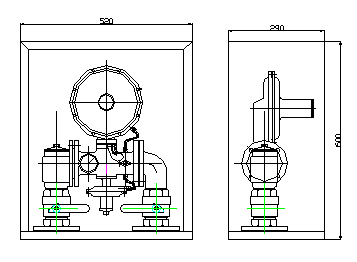
Dec . 12, 2024 09:14
Back to list
filtration
The Importance of Filtration A Key Component in Modern Technology
Filtration is an essential process that has profound implications across various fields, from environmental science to healthcare, food production, and industrial applications. At its core, filtration involves the separation of solids from fluids (liquids or gases) by adding a medium through which only the fluid can pass. This seemingly simple action is crucial for ensuring purity, safety, and efficiency in numerous applications.
Environmental Impact
In the context of environmental science, filtration plays a vital role in water purification. Contaminated water poses significant health risks to humans and ecosystems alike. Advanced filtration technologies, such as reverse osmosis and membrane filtration, have become indispensable in treating wastewater and providing clean drinking water. These techniques remove pollutants, bacteria, and heavy metals, making water safe for consumption and reducing the environmental impact of industrial discharge.
Moreover, in air quality management, HEPA (High-Efficiency Particulate Air) filters are employed to trap harmful particles and allergens, contributing to healthier indoor environments. This is especially important in urban areas where pollution levels are high. The implementation of such filtration systems not only improves public health but also enhances overall quality of life.
Healthcare Applications
The healthcare industry heavily relies on filtration for both sterilization and purification processes. Surgical instruments and medical devices must be free of contaminants to prevent infections and complications during procedures. Various filtration technologies, including microfiltration and ultrafiltration, ensure that air, water, and blood products are free from pathogens.
Additionally, filtration is crucial in the production process of pharmaceuticals. The need for highly purified substances necessitates advanced filtration systems to eliminate impurities that could compromise drug safety and efficacy. The proper application of filtration technology can significantly reduce the risk of adverse reactions and enhance patient care.
filtration

Food and Beverage Safety
In the food and beverage industry, filtration is critical for maintaining quality and safety standards. It is used in several processes, ranging from the clarification of juices and wines to the removal of impurities in water used for cooking and processing. For example, microfiltration is often employed to remove yeast and bacteria from beverages, ensuring longer shelf life and improved taste.
Further, during the production of dairy products such as cheese and yogurt, ultrafiltration is utilized to concentrate proteins while removing unwanted microorganisms and fats. The result is a product that meets both safety standards and consumer expectations for quality.
Industrial Applications
Industrially, filtration systems are integral to manufacturing processes. They are employed to capture airborne dust and particulate matter produced during operations, contributing to cleaner working environments and compliance with environmental regulations. Notably, in pharmaceuticals and food production, filtration ensures that the end products are of the highest standards.
Filtration also plays a key role in the petrochemical industry, where it is used to refine crude oil into usable products. Through various filtration techniques, impurities are removed to produce fuels that meet stringent quality specifications.
Conclusion
In conclusion, filtration is a cornerstone of modern technology that extends its benefits across multiple sectors. From preserving the integrity of our water and air to ensuring the safety of our food and healthcare supplies, filtration is indispensable. As technologies evolve, new filtration methods are emerging, enhancing efficiency and effectiveness. The continuous development and application of innovative filtration solutions promise a healthier and safer future for our planet. Emphasizing the importance of these systems can lead to greater public awareness and investment in better filtration technologies, ultimately fostering a cleaner and more sustainable world.
Latest news
-
Safety Valve Spring-Loaded Design Overpressure ProtectionNewsJul.25,2025
-
Precision Voltage Regulator AC5 Accuracy Grade PerformanceNewsJul.25,2025
-
Natural Gas Pressure Regulating Skid Industrial Pipeline ApplicationsNewsJul.25,2025
-
Natural Gas Filter Stainless Steel Mesh Element DesignNewsJul.25,2025
-
Gas Pressure Regulator Valve Direct-Acting Spring-Loaded DesignNewsJul.25,2025
-
Decompression Equipment Multi-Stage Heat Exchange System DesignNewsJul.25,2025

